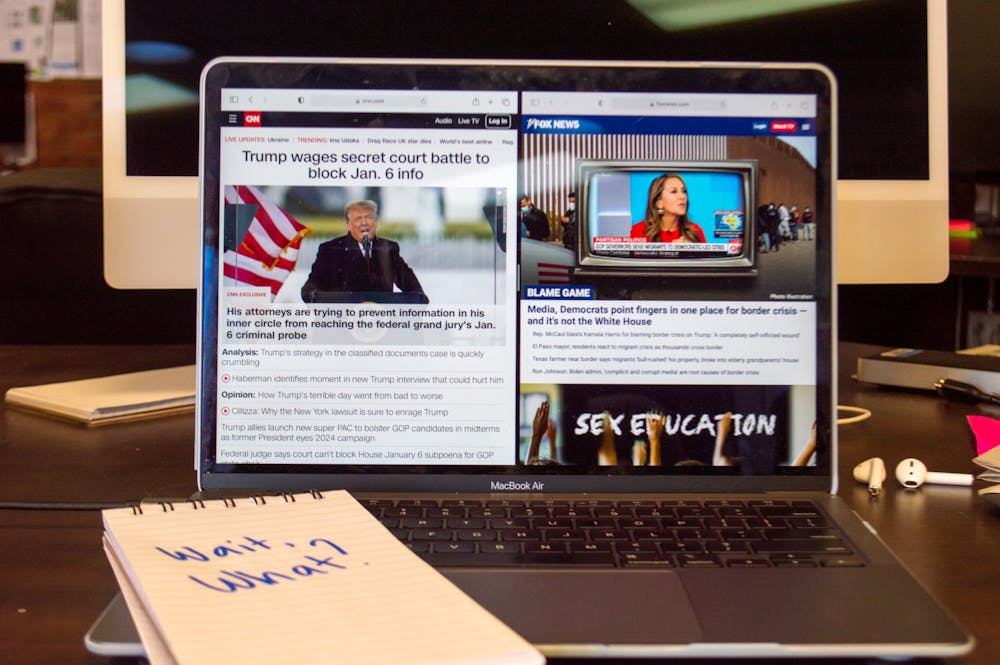“Now players like Google and Facebook have kind of stepped in to play through their algorithms … this sort of mediating and filtering role, since you can’t take in everything," William Goldsmith, a teaching assistant professor from UNC's public policy department, said.
If I like an Instagram post from The New York Times, Instagram takes that data and feeds me what it thinks I want to see in the future. Now, I’m reading biased news without even realizing it’s being filtered for me.
As a public policy major (albeit, a first-year student who has taken one policy class) and someone who has always been intrigued by current events, I feel like I am a privileged news consumer. My interests allow me to make a conscious effort to be informed. While many young people may have access to online news content, not everyone has the time to read past the headline.
“I’m gonna be honest, I don’t seek out news … but I don’t like to be put on the spot and not know what I’m talking about … especially as a college student we’re going from class to class … I kinda just read [news] when I can," Ascher said.
In today’s tense political climate, if a topic is brought up in conversation and you don’t know what you’re talking about, it’s an extremely vulnerable moment.
The power of confirmation bias should not be understated; people of all ages turn to the comfort of Fox News, CNN, Instagram pages or Twitter accounts. Everyone thinks the news they’re reading is the right news: how is “brainwashing” from social media any worse than Fox News' “brainwashing?”
“I think the change that’s happened is that people don’t have any shame. I think that there’s stuff that’s being said now that’s just ridiculous," said Frank Baumgartner, a UNC political science professor. "People seem to be gullible ... if it happens to be something that works to support their candidate."
The information ecosystems we exist in are overwhelming and almost laughable.
When discussing the rise of social media and its role in biased news, Goldsmith said: “in many respects, it goes back to the end of the Fairness Doctrine, a document that basically said if you were using something that was broadcast over American-licensed airways, whether on TV or radio, you had to kind of counterbalance something with some view of the other side.”
News outlets are no longer required to simply report on facts; everything’s riddled with opinion and debate.
So how are we supposed to consume news?
“If you can really concentrate on the things that really matter, it’s a lot easier, and just don’t pay attention to the stuff that … whatever criteria you want to use … you can just recognize it as low priority," Baumgartner said.
To get the day's news and headlines in your inbox each morning, sign up for our email newsletters.
We have to draw the line somewhere to protect our sanity; we, especially as college students, simply don’t have the capacity to flood our brains with confusing, negative news.
Social media has definitely lowered the standard for current events reporting, but networks like Fox News or CNN aren’t much better, nor are newspapers. It’s a privilege to be able to spend hours researching after something significant happens, so sometimes the best we can do is be skeptical of news and set boundaries on how much we’re consuming.
And don’t let older people tell you that you don’t know what you’re talking about — they probably don’t either.
@dthopinion
opinion@dailytarheel.com



